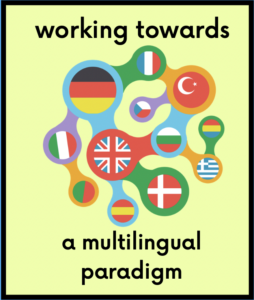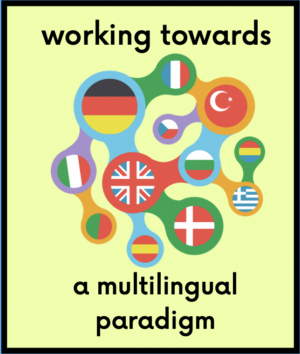
“Introduction to Multilingualism in ENA and ENG 101” by Ting Man Tsao
Letter of Welcome & Introduction to Multilingualism in ENA 101 by Ting Man Tsao
Hi, How are you? 你好吗 Nǐ hǎo? 你好嗎?
This is Dr. Tsao of the English Department. Welcome to our first composition class at LaGuardia!
The LaGuardia community is linguistically diverse. We have native English speakers and we also have bilingual or multilingual speakers. This short video is about bilingualism or multilingualism in college composition. If you only speak English, that is perfectly fine. You may learn something from this video as well.
For bilingual speakers, like me, we speak English at school and speak our native language or dialect at home or in other places. As for me, I speak Cantonese 廣東話 at home or with friends in Hong Kong and I often browse both English and Chinese websites for news and information. But I only publish academic articles in English, and my profession is teaching English composition and literature.
Our bilingualism or multilingualism raises an important question. Can our proficiency in a language other than English help us do better in our college writing classes? Recent research says yes, but this is a complicated and personal issue.
When I was learning English in Hong Kong, Cantonese did not play any role in the classroom. Actually my teachers used to tell us to leave our native language at the school door. Speak more English, read more English, write more English. That is the teacher’s advice.
But writing does not take place in a vacuum. We write essays, stories and poetry based on our ideas and experiences. And a lot of my ideas and experiences come from my Cantonese culture and from Hong Kong. The dissertation for my PhD in English at Stony Brook University was on the Opium War, something I learned from Hong Kong. I used both British and Chinese sources in this dissertation and other related publications. And in daily life, there are Cantonese expressions for which I cannot find any equivalents in English or even in Mandarin, the official Chinese dialect.
So my advice is: “Don’t leave your native language or dialect at the door of our ENA or ENG101 classroom.” Work with your professor and think of creative and fun ways to tap into your rich native language heritage and culture. And use it well.



Leave a Reply